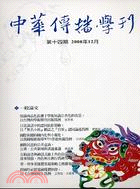 閱覽人數: 2415
閱覽人數: 2415
December
2008
No. 14
頁數:115 - 167
作者(中)
楊意菁
作者(英)
Yie-Jing Yang
關鍵詞(中)
網路民意 ; 民意公共性 ; 公眾 ; 公共領域 ; 溝通審議
關鍵詞(英)
public opinion of internet ; public opinion of public ; publics ; public sphere ; deliberative communication
中文摘要
本研究從民意公共性的角度-公眾、公共領域以及溝通論證,說明網路民意所呈現的內涵,並以文本分析的方式,分析網路政治討論版所呈現的民意公共性意涵。研究結果顯示,網路公眾呈現出匿名公眾、多重主體的虛擬公眾、符號公眾以及少數公眾的意涵。網路的公共領域概念也無法反映傳統民意公共領域的意涵,而以另類的公共領域稱之則較為妥當。網路的論證與溝通方面,大部分網友皆能針對話題討論,且可展現立即回應的互動對話方式,少部分討論進入後設理論的說明,但溝通仍缺乏相互參照,以致於審議過程缺乏反思,二元對立意見較多。
英文摘要
The purpose of this study is to explore the nature of the internet's public opinion, drawing on concepts from the traditional approaches to public opinion. This paper employs text analysis to examine the form of public opinion in two internet forums. The "publics" on the internet fall into the following categories: anonymous public, multi-subjective public, symbolic public and minority public. The concept of public sphere in the internet is different from its traditional counterpart. Moreover, participants in the internet are capable of engaging in dialogues regarding public affairs, nevertheless, they tend to lack reflexive thinking and perspective taking abilities. The internet is thus far short of being a forum for deliberative democracy; rather it provides a convenient access for people to speak out.